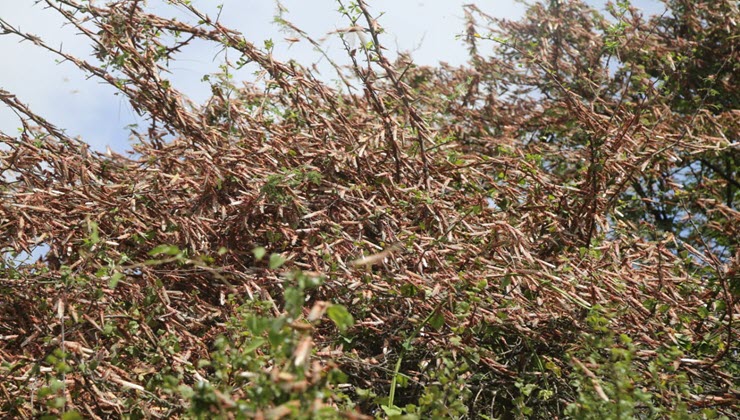Somalia declares emergency over locust swarms

Somalia has declared a national emergency as large swarms of locusts spread across east Africa.
The country’s Ministry of Agriculture said the insects, which consume large amounts of vegetation, posed “a major threat to Somalia’s fragile food security situation”.
There are fears that the situation may not be brought under control before the harvest begins in April.
The UN says the swarms are the largest in Somalia and Ethiopia in 25 years.
Meanwhile, neighbouring Kenya has not seen a locust threat as severe in 70 years, according to the UN Food and Agriculture Organization (FAO).
However, Somalia is the first country in the region to declare an emergency over the infestation.
Somalia’s unstable security situation means that planes cannot be used to spray insecticide from the air.
In January, the FAO called for international help in fighting the swarms in the Horn of Africa, warning that locust numbers across the region could grow 500 times by June.
The swarms spread into east Africa from Yemen across the Red Sea, after heavy rainfall in late 2019 created ideal conditions for the insects to flourish.
Locusts can travel up to 150km (93 miles) in a day. Each adult insect can eat its own weight in food daily.
In December, a locust swarm forced a passenger plane off course in Ethiopia. Insects smashed into the engines, winds












